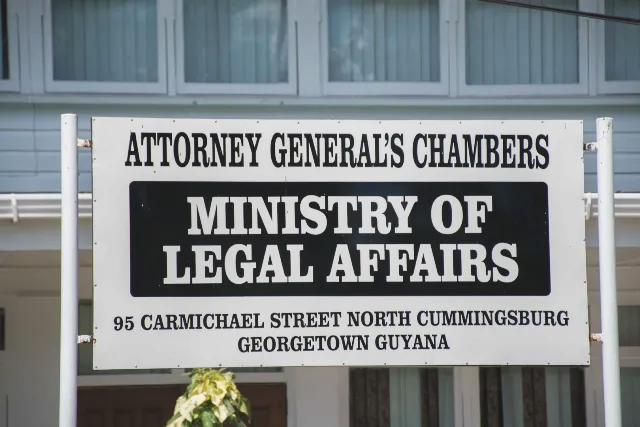A move to end time-consuming preliminary inquiries in the courts is moving ahead with a major reform bill soon to go to Cabinet and then to the National Assembly.
In what would be a major development in the justice system once passed in Parliament, the Attorney General’s Chambers yesterday released the draft Criminal Law Procedure (Paper Committals) Bill 2023.
A statement from the Attorney General’s Chambers said that the Bill provides for the abolition of preliminary inquiries and their substitution with paper committals, which involve reviewing the evidence and arguments presented by both the Prosecution and the Defence in written form, rather than conducting an in-person hearing.
The statement said that under the new system, the Magistrate would review the written submissions and make a determination based on the available evidence.
“The paper committal process saves time and resources by eliminating the need for witness testimony and cross-examination during the preliminary inquiry stage. This will inevitably save judicial time, reduce the backlog of criminal cases and reduce the prison population on remand”, the statement added.
In October last year, Stabroek News reported Attorney General Anil Nandlall SC as stating that the government was looking for a consultant to help it craft a bill that would end time-consuming preliminary inquiries (PIs).
“We are now moving in the direction of drafting legislation to abolish PIs at criminal trials. This initiative has already been taken in England and in various countries in the Caribbean…It is public knowledge that a Preliminary Inquiry takes years to determine, and has caused a tremendous backlog in the criminal justice system, hence the movement to abolish it across the Commonwealth,” Nandlall told Stabroek News.
The statement yesterday said that once passed, the Bill will bring Guyana on par with jurisdictions across the Caribbean and the Commonwealth that have already abolished the use of the PI. The statement noted that only recently, while in Guyana, judges of the Caribbean Court of Justice (CCJ) hailed this measure as one that has worked with great success in the region and across the Commonwealth in reducing the backlog of cases, cutting time spent on remand and improving the efficiency in the criminal justice system.
Yesterday’s statement noted that the Paper Committal system was first introduced into Guyana by the Sexual Offences Act in 2010. “It has survived several legal challenges and has worked reasonably well”, the statement said.
The statement noted that submissions were solicited on the draft bill from the Chambers of the Director of Public Prosecutions (DPP), the Office of the Police Legal Advisor, the Guyana Bar Association, the Berbice Bar Association, and the Law Reform Commission.
The explanatory memorandum of the draft bill says that Clause 3 of the Bill provides for the application of the Act to all proceedings in respect of indictable offences, except for proceedings under the Sexual Offences Act.
Clause 5 of the Bill provides for the conduct of paper committal proceedings in the presence of the accused and Clause 7 of the Bill sets out the evidence which is admissible in paper committal proceedings.
Evidential requirements
Clause 8 of the draft Bill provides the evidential requirements that must be met with respect to written statements sought to be admitted as evidence in paper committal proceedings. Clause 9 of the Bill addresses the evidential requirements that must be met with respect to depositions sought to be admitted as evidence in paper committal proceedings. Clause 10 deals with the evidential requirements that must be met with respect to other statements sought to be admitted as evidence in paper committal proceedings.
Clause 12 of the Bill requires evidence to be read aloud in paper committal proceedings.
Clause 14 of the Bill empowers a magistrate to issue a summons or warrant directing that a person’s evidence be taken as a deposition or requiring that person to produce a document or other exhibit. Clause 15 provides for a magistrate to commit an accused for trial for an offence if the magistrate is satisfied with the admissibility of the evidence. Clause 16 sets out the procedure whereby a magistrate may commit an accused for trial without consideration of the evidence. Clause 17 underlines the procedure for the committal or discharge of an accused person on consideration of the evidence. Clause 18 of the Bill mandates a magistrate to record the reasons for the committal or discharge of an accused person in writing.
Under Clause 19 the Director of Public Prosecutions is empowered to give directions to a magistrate in any case where the magistrate discharges an accused person. Clause 20 of the Bill provides for a person whose statement, deposition, document or exhibit was not tendered in evidence during a paper committal to give evidence at the trial of the accused person.






